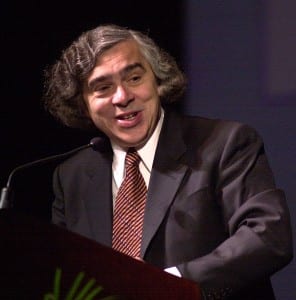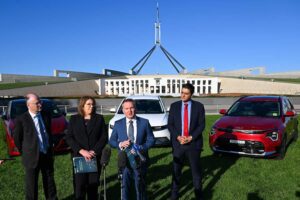The global economy needs to move faster to a low carbon future to reduce greenhouse gas emission causing climate change, US Secretary Energy Dr Ernest Moniz said today.
 “The kinds of ambition we are talking about in the context of current commitments will not look nearly ambition enough as we get to mid-century and beyond,” Moniz told the Sustainable Innovation Forum, organised by the UN Environment Programme, in Paris.
“The kinds of ambition we are talking about in the context of current commitments will not look nearly ambition enough as we get to mid-century and beyond,” Moniz told the Sustainable Innovation Forum, organised by the UN Environment Programme, in Paris.
“We’re not talking about 25 to 30 per cent reductions in greenhouse gas emissions but about 80 to 100 per cent emissions reductions”.
Moniz said the world was “definitely on the path to a low carbon future” but it needs to “pick up the pace”.
“There’s no question about where we are going. I think the issue is the pace at which we get there.
“We surely don’t have a lot of time. And I think that’s why this continuing innovation agenda is so important. We need to pick up the pace to get there.”
Moniz said the “virtuous cycle” of innovation, cost reduction and deployment is well established for renewable energy and energy efficiency technologies such as LED lighting.
“If I look at just the time period from the Copenhagen conference (2009) to this conference (Paris). We have seen cost reductions of wind, solar, batteries, LED lights, that range from 40 per cent to 90 per cent,” Moniz said.
In the US deployments have increased 3 fold for wind, 20 fold for solar and 200 fold for LED.
“This is the paradigm we have to sustain. It will be, in my view, a very critical foundation for the kinds of increasing ambition that we need to see year by year and decade by decade,” Moniz said.
In the last 2 years there has been 50 per cent cost production of LED lights and in the US a 6 fold increase in deployment with over 80 billion lights in use. This was also happening in developing world, as in India.
Moniz said there were still many people who had the misconception that renewables and energy efficiency as a “niche activity” when it was already larger than the car industry in the US.
“We have 175,000 direct jobs in the solar industry, its much bigger than automobiles, manufacturing and many other activities,” he said.
Moniz, in response to a question from the audience, said he was “very optimistic” tax credits for renewable energy, supported by the Obama administration, would be extended.
“Over the next 10 days we are very optimistic that there will be a tax extender package and I personally find it hard to understand how there can be such a package without including an extension of the renewable, both production and investment, tax credits,” Moniz said.







